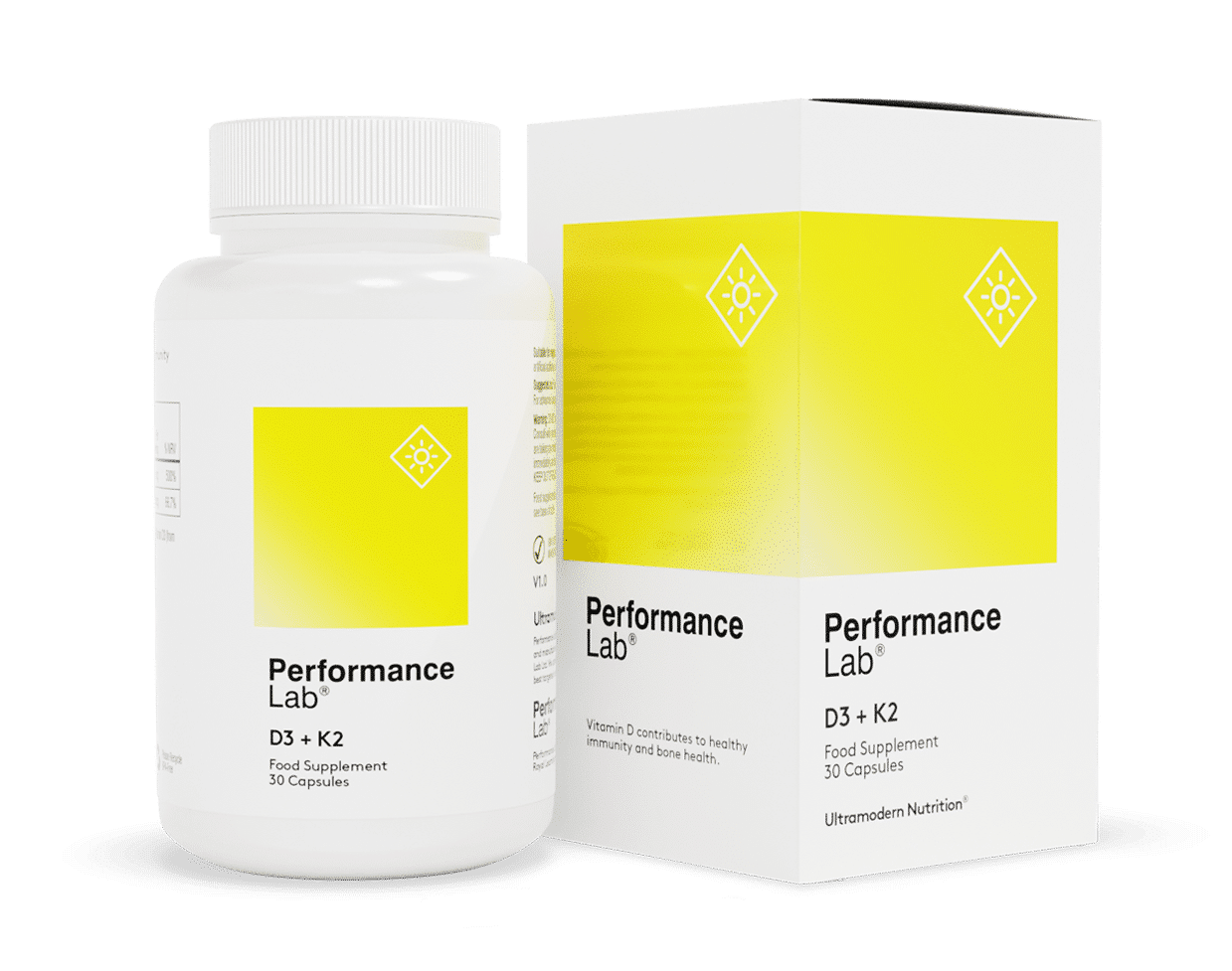Celiac Vitamin Deficiency: The Silent Battle Within

Coping with a celiac diagnosis? Feels like a curveball, right? But in this labyrinth, understanding is the golden key.
Vitamins playing hide-and-seek? Spot the culprits – Vitamin B12, D, and iron. Add gluten-free allies to your diet’s army. And let the best multivitamin for celiac disease be your secret weapon.
Ready to deep dive and crack this mystery? Let’s seize the health reins together! Buckle up, wellness awaits!
Performance Lab NutriGenesis Multi

Experience the power of optimal health – overcome celiac vitamin deficiency with Performance Lab NutriGenesis Multi, the ultimate choice for your wellbeing!
Key Takeaways
- Untreated celiac disease can result in deficiencies in iron, B12, folate, vitamins D and K, zinc, and calcium.
- Deficiencies may persist even after long-term adoption of a gluten-free diet. Yearly screenings can help identify ongoing issues.
- Complete elimination of gluten and gut healing are essential. A knowledgeable dietitian can help avoid hidden gluten sources.
- Supplements like iron, B12, folate, and vitamin D can help alleviate deficiencies. Consult your doctor for personalized advice.
- Strict gluten avoidance, nutrient replenishment, and self-care can lead to optimal health. Stay committed!
Understanding Celiac Disease: An Overview
Alright, let’s break down celiac disease. Think of gluten as a party crasher in your body’s bash. Found in wheat, barley, rye – it’s in loads of foods.
Now, once this uninvited guest shows up, it starts a ruckus in your small intestine, especially messing with the villi. These little guys are crucial for nutrient absorption.
With gluten playing wrecking ball, the villi get flattened – like unplugging your favorite band mid-gig.
The result? A nutrient scavenger hunt with few winners, leading to nutritional deficiencies.
Cut gluten out, though, and you’re back on track!
Why Vitamin Deficiencies are Common in Celiacs
Vitamin deficiencies are super common in celiac patients. We’re talking up to 80% of people have them, in terms of iron deficiency anemia! [1].
There are a few reasons why:
- Malabsorption: The damaged villi in your small intestine can’t properly absorb nutrients and they just pass right through you.
- Inflammation: The inflammation celiac causes prevents proper nutrient absorption.
- Diarrhea: Nutrients also fly right out of you if you have diarrhea, which is common when not managing celiac disease effectively.
- Duration of disease: The longer a celiac doesn’t manage their condition, the more nutrient stores their body burns through.
So in plain English, between malabsorption, inflammation, diarrhea, and duration of disease, celiac disease left untreated is a perfect storm for micronutrient deficiencies.
The Most Common Vitamin Deficiencies
If you’re newly diagnosed, which deficiencies caused by celiac disease should you look out for? Here are some of the big ones:
Iron
Iron deficiency anemia is one of the hallmark signs of untreated celiac disease. Anemia is when you have a low red blood cell count or low hemoglobin.
Red blood cells carry oxygen through your body. When you’re anemic, you feel fatigued and weak.
Up to 50% of people with celiac disease are iron deficient. The damaged villi in your small intestine prevent proper iron absorption.
Iron deficiency anemia often improves with a gluten-free diet. But iron supplementation may help replenish depleted iron stores more quickly.
Vitamin B12
Vitamin B12 deficiency affects 5-40% of people with celiac disease [2]. B12 plays a vital role in DNA synthesis, nerve function, and red blood cell formation.
Low B12 can cause fatigue, memory issues, and neuropathy. B12 requires a protein called intrinsic factor for absorption.
The parietal cells that produce intrinsic factor often get damaged in celiac disease. So vitamin B12 passes through without being absorbed.
Folate
Folate (vitamin B9) deficiency is also very common in celiac disease [1]. Folate works with B12 in red blood cell formation and DNA synthesis.
Inadequate folate can lead to anemia similar to iron deficiency anemia. According to the National Institutes of Health, folate deficiency affects up to 90% of untreated celiac patients.
Vitamin D
A large proportion of adults with newly diagnosed celiac disease are vitamin D deficient [3]. Vitamin D plays a huge role in immune health and bone strength.
Without adequate vitamin D, you’re at risk for frequent infections, osteopenia, osteoporosis, and even fractures.
Vitamin D requires fat for absorption. Since celiac damages the intestinal lining, the fat soluble vitamin D slips right through.
Vitamin K
Vitamin K deficiency affects up to 50% of people with untreated celiac disease. Vitamin K is essential for proper blood clotting. Without it, you may bruise easily or have excessive bleeding.
Vitamin K deficiency is also associated with weaker bones and increased fracture risk.
Similar to vitamin D, the fat soluble vitamin K can’t be absorbed properly with intestinal damage.
Zinc
Zinc deficiency occurs in up to 67% of untreated celiac cases [4].
Zinc is vital for immune function, growth, taste perception, and digestion. Loss of taste and appetite are common zinc deficiency symptoms.
Zinc deficiency may also cause hair loss, diarrhea, skin rashes, and impaired wound healing.
The high rate of zinc deficiency in celiac disease is likely due to impaired absorption from intestinal damage.
Calcium
Calcium deficiency is common in untreated celiac disease, though exact rates are unknown. Calcium is essential for bone structure and strength.
Inadequate calcium can lead to osteopenia and osteoporosis. Calcium deficiency likely stems from the intestinal injury that prevents proper absorption.
Performance Lab D3 + K2

Elevate your wellness game with Performance Lab D3 + K2: a science-backed formula to support bone, immune, and overall health. Upgrade now!
Do Nutrient Deficiencies Resolve on A Gluten-Free Diet?
The gluten-free diet is life-changing for healing celiac disease. But contrary to popular belief, going gluten-free doesn’t solve all micronutrient deficiencies [5].
So, why the lingering deficiencies? A few reasons:
- Incomplete healing: For some, the intestinal damage never fully resolves even on a gluten-free diet. This impairs nutrient absorption long-term.
- Pre-existing deficiencies: Nutrient stores may already be depleted when starting a gluten-free diet.
- Poor gluten-free diet: An unbalanced gluten-free diet predisposes you to deficiencies. Many processed gluten-free products are low in nutrients.
- Continued accidental gluten ingestion: Even small amounts of continued gluten exposure keeps the intestines inflamed and damaged.
The bottom line is this: Don’t assume the gluten-free diet will correct all vitamin and mineral deficiencies long-term. Testing and supplementation may be necessary.
When to Test for Deficiencies
The best time to test for any deficiencies in vitamins is at celiac diagnosis, and then annually after starting a gluten-free diet.
Annual screening helps detect any persistent nutritional deficiencies in celiac patients.
If you have symptoms of a deficiency like fatigue or neuropathy, get tested right away. You want to catch and treat deficiencies early. Letting them go too long can lead to permanent damage.
Which deficiencies should you test for? Experts recommend screening for iron, B12, folate, vitamin D, zinc, and calcium at a minimum.
Work with your doctor to order the right blood tests. Also get tested any time you develop potential deficiency symptoms.
Don’t disregard symptoms as just part of having celiac disease. Investigate whether an underlying deficiency is causing them.
Tips for Preventing Nutritional Deficiencies As A Celiac
The best way to prevent vitamin and mineral deficiencies is to heal your gut completely. That means strict removal of all traces of gluten from your diet and lifestyle.
Easier said than done! It takes vigilance and time. But with diligence, you can get your intestines functioning properly again. Here are some tips:
- Consult with a skilled dietitian to help learn hidden sources of gluten.
- Check labels carefully and avoid unclear ingredients like “natural flavors.”
- Only purchase certified gluten-free products that are tested to under 10ppm.
- Prevent cross-contamination in food prep and contact surfaces.
- Ask about ingredients when dining out and steer clear of high risk foods.
The longer you can maintain a strict gluten-free diet, the better your intestines can heal. Aim for 6 months to 2 years of stringent avoidance.
After your gut has healed, an occasional minor gluten exposure is less likely to trigger deficiencies.
Supplements for Common Nutrient Deficiencies
Alongside a gluten-free diet, supplementation can help correct deficiencies. Work with your healthcare provider to determine which supplements may be beneficial.
Here are some options:
Iron: Iron glycinate or iron bisglycinate are gentler on the digestive system. Take 30-50 mg of elemental iron daily.
Vitamin B12: Methylcobalamin and adenosylcobalamin are the most easily absorbed and utilized by the body. 1000 mcg daily or 5000 mcg weekly works well.
Folate: Methylfolate is the most bioavailable form. Take 400-1000 mcg daily.
Vitamin D: Vitamin D3 (cholecalciferol) effectively raises blood levels. Take 2000-5000 IU daily. Get blood tested after 3 months.
Vitamin K2: This form helps improve calcium and bone metabolism. Take 100-180 mcg daily.
Zinc: Opt for zinc picolinate, citrate or gluconate. 30 mg daily.
Calcium: Avoid calcium carbonate. Calcium citrate is better absorbed. Take 500-600 mg daily.
Work with your doctor and dietitian to determine which supplements are right for your needs and at what dosages.
Take the bare minimum needed to correct the deficiency. Also incorporate vitamin and mineral-rich foods in your gluten-free diet.
Celiac Vitamin Deficiency – The Outlook Moving Forward
With celiac disease throwing a spanner in the works, your body might play hide and seek with certain vitamins.
It’s a bit like putting a lock on the fridge – the good stuff is there, but you just can’t get to it!
But don’t fret, there’s light at the end of this tunnel. Sticking to a gluten-free diet like glue, popping the right supplements like Performance Lab D3 + K2 and NutriGenesis Multi, and getting regular check-ups will help you dodge this curveball.
With some smart moves and a dash of determination, you can keep your health humming along like a well-tuned engine.
Also Read: 28% Of Americans Think People On the Gluten-Free Diet Are ‘Doing It For Attention’
Disclaimer: This content is based on my personal experience as an individual diagnosed with celiac disease and IBS (Irritable Bowel Syndrome) who follows a strict gluten-free diet. This does not constitute medical advice. Please consult a medical professional, nutritionist, or qualified dietitian for personalized, professional advice.






